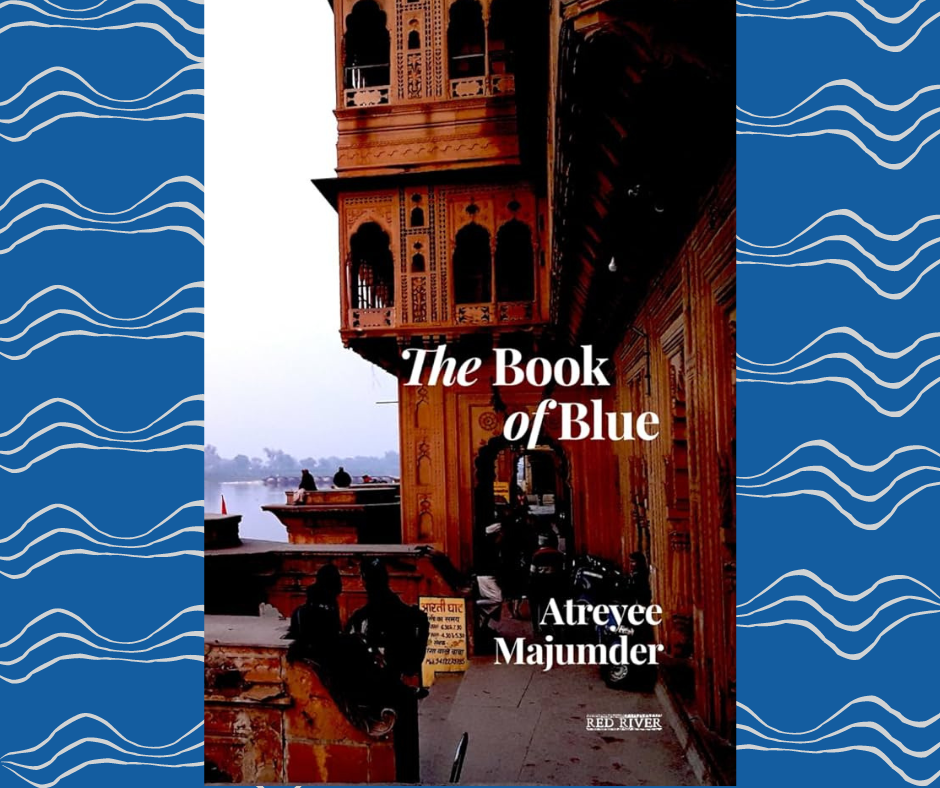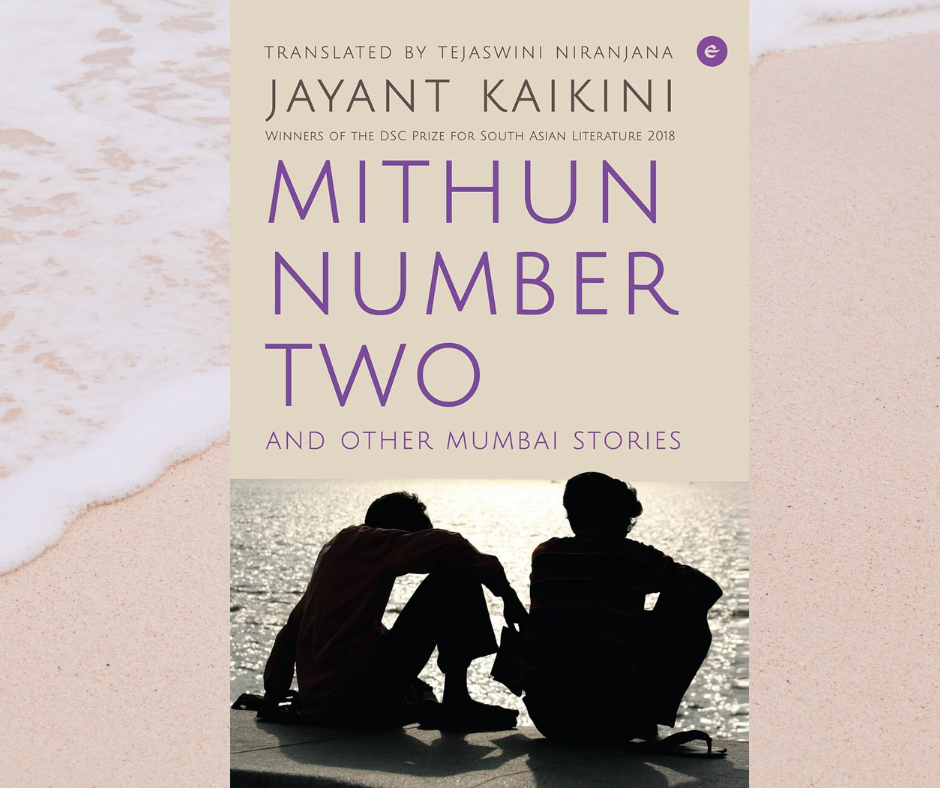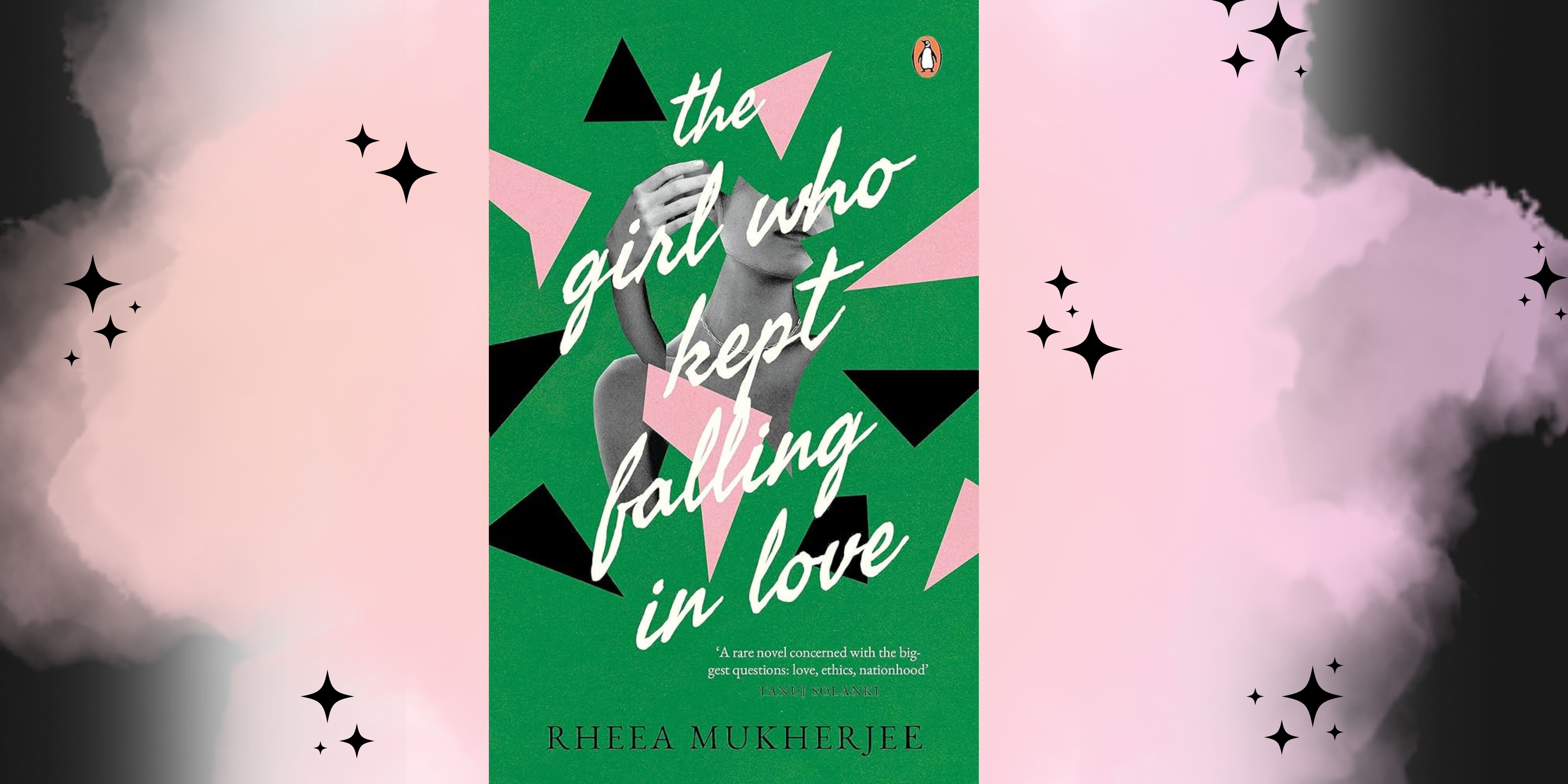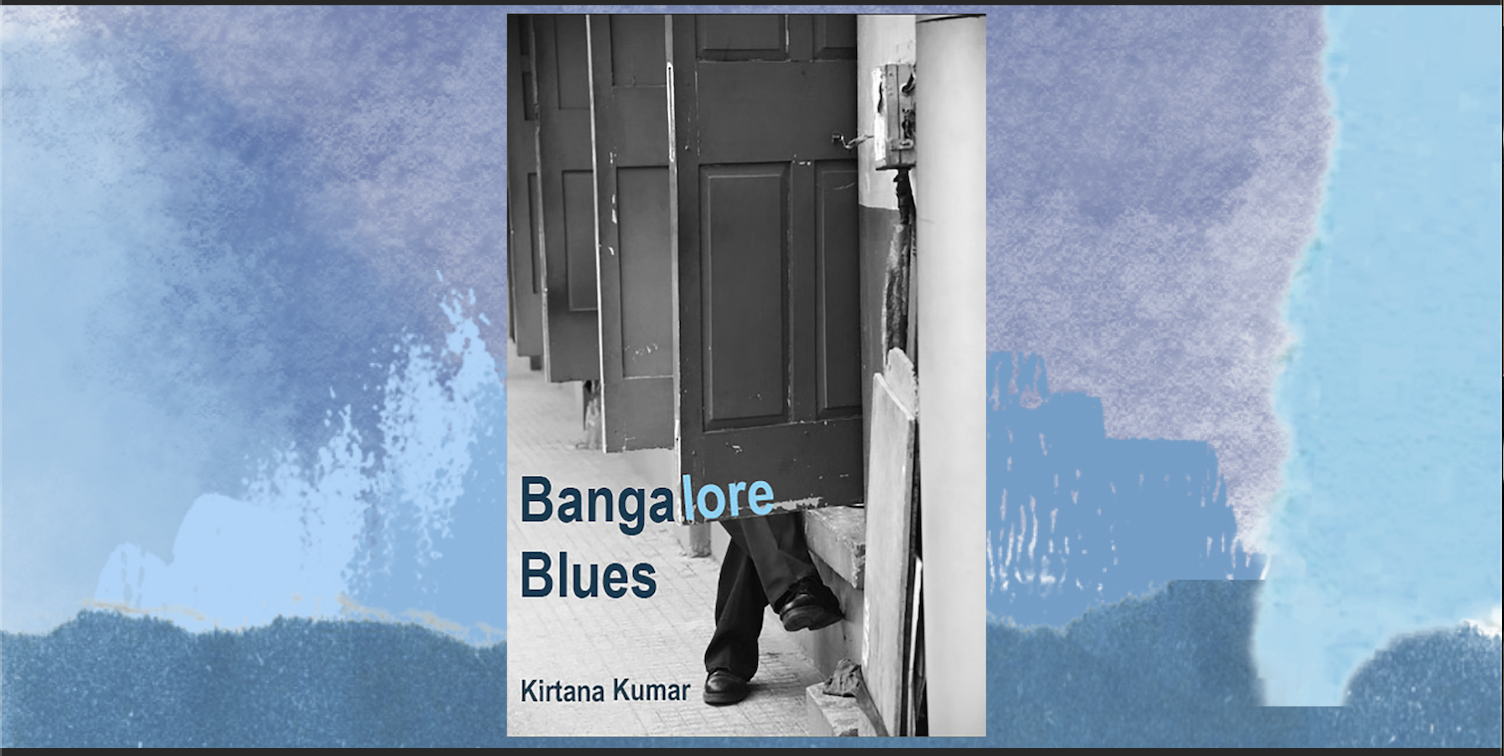The Book of Blue
by Atreyee Majumder
Publisher: Red River (2024)
“I find poems in my afternoon nap”. (“A New Poem”)
There may not be a better description for the poems in the collection called “The Book of Blue” by Atreyee Majumdar. Each poem is a vision, an image; but firmly bordered by the poet’s premises and her musings. Majumdar beautifully translates her visions into verses, most of which are enriched by her own life experiences. The poems, hence, are tinted with her experiences–as a student of colour in the USA, her struggle with mental health, and her tryst with spirituality.
The book contains 37 poems written by her, some of which have been published earlier. These are grouped under 3 sections titled Time, Restless and Still.
The poems under Time juggle with the different aspects of time and timelessness. For example, she toys with the relativity of time, travelling “Aeons in the matter of a coffee-sip” across oceans and continents (“Aeon”). The poet laments the everyday horrors of life, which most of us are blissfully oblivious. The aftermath of war and riots unfold before us; stark images of poverty stare into our eyes. Majumdar even questions history, which is politically contorted and she mocks those in power when they state “War for peace, freedom, dignity”. In “Pandemic”, the poet declares that “survival is my defeat” though she has won the battle with the pandemic. She is writing to her “diseased soul”, which is also now dead—it is just the survived body waiting for its turn. The play with words ‘numb’, ‘number’ and ‘diseased’ are interesting (“Numb is a number..”). Everything here is a test or testament of time. The poem “History” brings out the futility of time. “If tomorrow comes I will be the ash-heap of today”.
Restless brings out an array of different thoughts strung together by the poet’s struggles with her digressing mind and also her quests towards spirituality. In “Loop”, the poet escapes to space (perhaps from sanity), sees mountains and craters; and returns only to realize that she does not have any proof to substantiate what she saw. She cries “out into the hollow universe” unable to prove herself. “So what if I didn’t have a notebook to prove it.” It brings out the helplessness of a person who just cannot express to the ‘sane’ world what she has been through. The escapes seem to be looping eternally. In “My Fascist and I”, Majumdar takes a dig at her own profession of anthropology. There is also a slight self-mockery when she says “I eat burnt eggs I And sugary chai I For breakfast I And contemplate the rise of Fascism”
The segment Still is predominantly rooted in spirituality and the stillness of peace. References to the dark lord, Krishna, is ample in the poems. The ‘Blue’ in the title of the collection is nothing but his colour. We can pick Radha, Arjun, Mathura and Vrindavan from many of them. “Biraha” beautifully captures her own quest for the supreme all over the world, when he is right there. She realizes that her Lord himself suffers from Biraha like her, and she finds a sense of oneness with him. The poem is itself a song of Biraha, accompanied by the mellifluous tanpura and flute. In “Moon and Sixpence”, the moon becomes a still trinket, a shining aluminium coin decorating its premises. Glimpses of the love-hate relationship she has with cities; starting from those in America and Paris to Calcutta and Bangalore, are aplenty. Majumdar finds the cities sometimes “wretched”, and sometimes “beloved” (“Taxi”). The cityscapes are captured beautifully indicating her belongingness. “The purple line runs straight into the universe”. “Sriramachandraji and the Fakir” is an interesting take on religion and the futility of it, in the background of the ghats in Benaras where life and death merge. “We are the signatories of this mammoth contract of life and death”; they, Sriramachandraji and the Fakir. Sriramachandraji cannot bear the cacophony that is his name, and the Fakir offers him a bidi. They take refuge in each other as they watch over the transience of life.
Majumdar is inspired by Bengali poetry, as she has confessed. “Abraham Came to my Door”, one of her earliest poems, ends with Bengali phrases underlining her love for Bengali language and poetry. The poems, though not set to a metre or rhyme, carry an inherent rhythm within, due to the carefully picked words. Imageries of escapades into insanity and madness are plenty–there are tunnels, chhillum, space…. Most of the poems are made of ‘I’ and ‘You’ and sometimes a ‘He’ , ‘She’ or ‘They’. We get to see the poet playing with the ‘I’ and ‘You’ many a time within a poem, confusing the reader about who is who. It reminds us of Sylvia Plath whose poems were coloured by her schizophrenic self. Majumdar’s poems are vivid, personal, political and spiritual. They unravel something new with every new reading.









